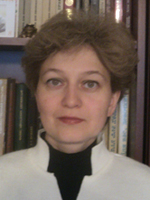The article examines the traditional philosophy problem of reason and faith, which has two aspects regarding the subject of knowledge. This problem is revealed in the context of the patristic Christian tradition, since the traditional approach in philosophy connects the study of this problem in the course of philosophy only with the West European medieval tradition. Hence the understanding of this problem, ending with the opposition of reason and faith, which, in the end, is enshrined in the philosophy of I. Kant. The author of the article compares the conceptual approach of Western European philosophy to the problem of reason and faith and Russian religious tradition. In Russian religious philosophy of the 19th – 20th centuries the problem of reason and faith was solved on the basis of the idea of integral knowledge, which, as we know, presupposes not a juxtaposition of faith and knowledge, but a harmonious combination of religion, science and philosophy. We believe that the idea of integral knowledge has developed in Russian religious philosophy also under the influence of Western European philosophy, and more precisely, under the influence of European rationalism, as an alternative to the strict separation of religion and science. The article shows that the theory of whole knowledge is not consistent with the patristic Christian tradition. The patristic tradition speaks of “knowledge-ignorance”, it contrasts the conceptual theology and contemplation, dogmas, and experience of indescribable secrets. In conclusion, the author concludes that the opposite of reason and faith, but on a completely different methodological basis. This allows the author to talk about the apophaticism of the Christian faith in the patristic tradition.
Keywords: religious philosophy, Christianity, problem of mind and faith, integral knowledge, hesychasm, Slavophilism, philosophy of unity
DOI: 10.22250/2072-8662.2020.4.102-107
About the author
 |
Nadezhda V. Tsepeleva – PhD (Philosophy), Associate Professor, Assistant Professor at the Department of Philosophy; Novosibirsk State Medical University; |






